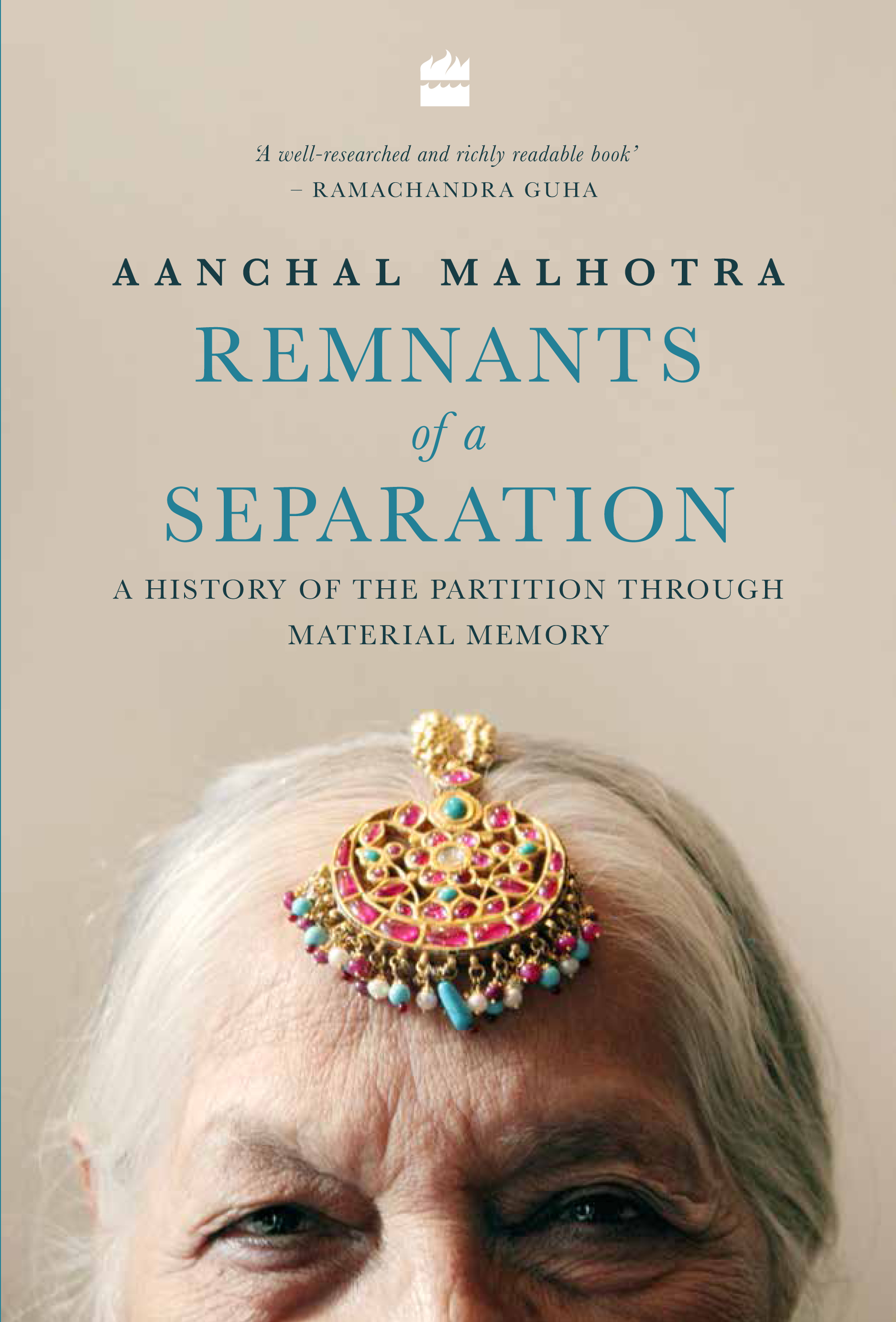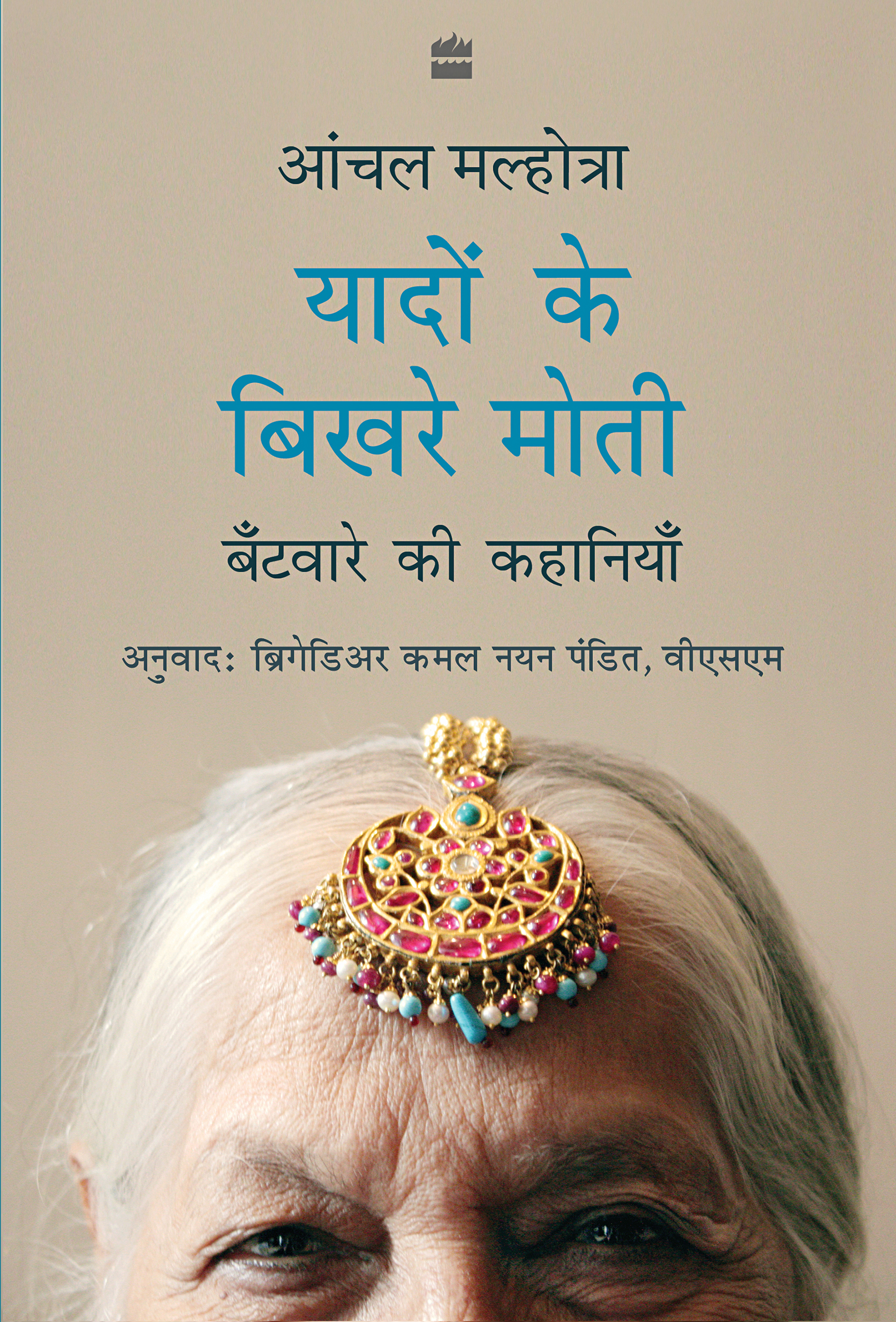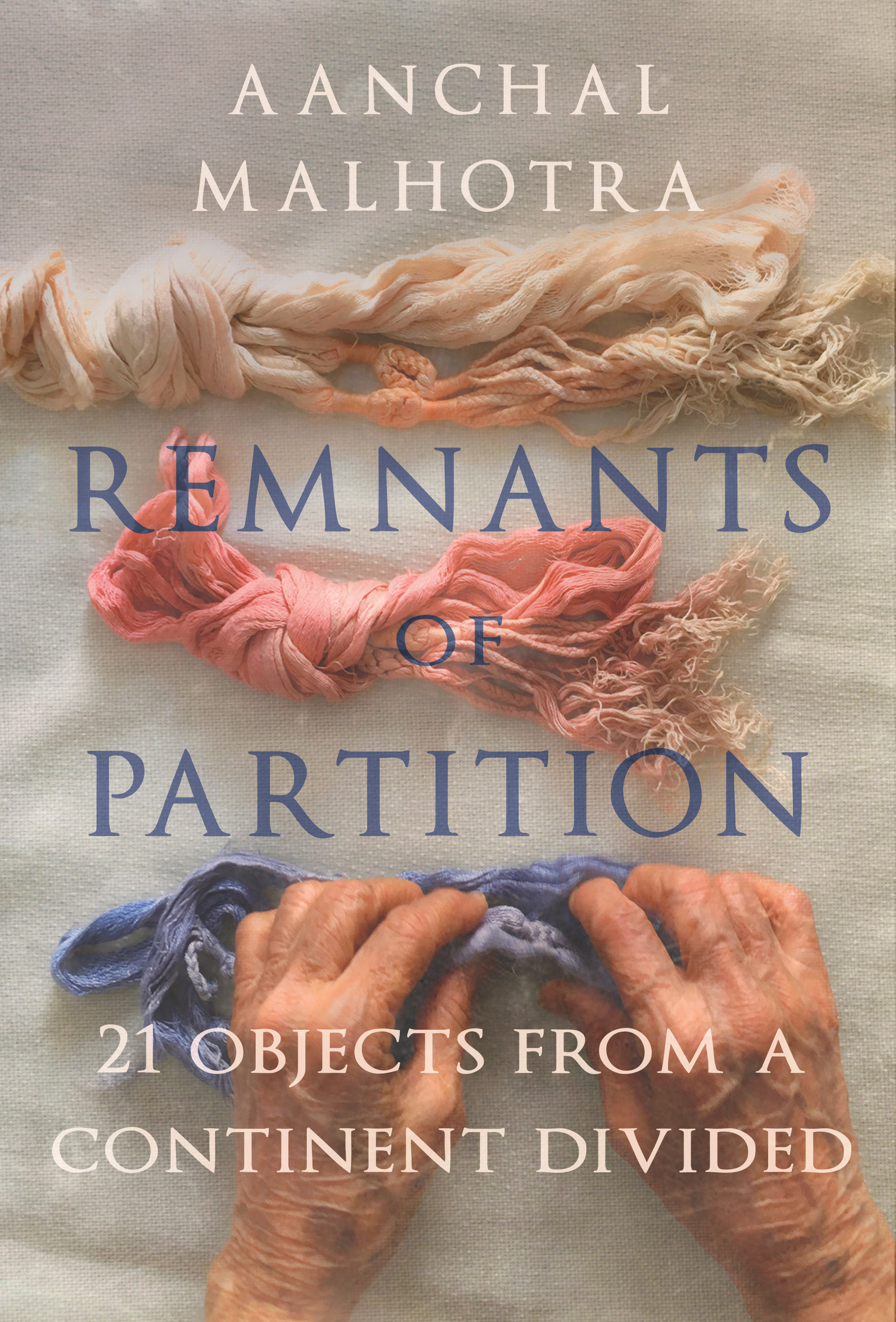REMNANTS
Remnants is an oral history archive and the first and only study of the belongings carried by refugees who migrated during the 1947 Partition of India. Written as crossover between history and anthropology, it tells stories from both sides of the Radcliffe Line, using precious and mundane personal objects as catalysts to evoke memory. The product of years of painstaking and passionate research, it is a remarkable alternative history, telling the family stories hidden within items carried between the new India and Pakistan, amid chaos and violence. They uncover a rich tapestry of pain and rupture, but also of hope and connection – in belonging through belongings, and identities reforged. From a string of pearls to a young woman’s poetry, this extraordinary book gives voice to the voiceless, restoring the everyday to a great drama of the twentieth century. Published in South Asia as Remnants of a Separation: A History of Partition through Material Memory (HarperCollins India, 2017) and internationally as Remnants of Partition: 21 Objects from a Continent Divided (Hurst, 2019).
To view an Illustrated Reading Guide, click here.
A HINDUSTAN TIMES 'INDIA @ 70' BOOK
WINNER Literary Prize of The Chambre de Commerce et d'Industrie Franco-Indienne 2024 | Council for
Museum Anthropology Book Prize 2022 | Valley of Words Prize for Hindi Translation | Oxford Book Cover Prize
SHORTLISTED British Academy Book Prize | Sahitya Akademi Yuva Puraskar | Shakti Bhatt First Book Award |
Kamaladevi Chattopadhyay NIF Book Prize | Hindu Lit for Life Non Fiction Prize,
LONGLISTED Tata Literature Live! First Book Award
PRAISE
'[A] reverential oral history. . . This moving book provides a uniquely personal view of the event and its enduring impact.' — Publishers Weekly
'Aanchal Malhotra is a new star of Indian non-fiction'
— William Dalrymple, historian and author
‘This is a book of startling originality, weaving stories of intimate connections with objects and harrowing histories of displacement into beautifully cadenced prose. It is a book to treasure.’ — Edmund de Waal, author of The Hare With Amber Eyes
'Aanchal Malhotra’s book drew me in from its very first story and its basic premise . . .The idea that she locates as the heart of her book is one that has been at the core of much recent work on Partition – that of memory. How do people remember, what do they remember, how do they hold on to memory, how does memory change and transform in its telling, and more specifically for her, how memory comes to crystallize around an object, a thing that becomes to its articulation. If memory lies at the heart of this book, so does its opposite – the act of forgetting. For, after all, once people get on with the business of life, memory tends to fade and become more diffused and the act of remembering then becomes an act of will.’
— Urvashi Butalia, Biblio
'There is a vast and growing literature on the Partition. What marks out Remnants of a Separation is the originality of its method. . . A well-researched and richly readable book. There is a vast and growing literature on the Partition. What marks out Remnants of a Separation is the originality of its method. Those interested in the modern history of India and Pakistan, as well as students of material culture more generally, should lay their hands on this well-researched and richly readable book.’ — Ramachandra Guha, historian and author
'A wonderful idea stylishly executed. Aanchal Malhotra looks at the treasured possessions that Partition refugees carried with them to tell powerful stories of upheaval and trauma – informed by her own family’s experience of living through that profound tragedy. She writes with compassion, restoring Partition as a story of people and what they went through more than one of politicians and statesmen.’
— Andrew Whitehead, former BBC India correspondent
'This is a truly original way to approach the history of Partition. Malhotra’s writing is evocative and through the finely observed details of everyday life, brings depth and empathy to understanding this event.’
— Yasmin Khan, author of The Great Partition
‘[Remnants of Partition] is one of the most compelling books I have read in a long time. It is a searing account of the power of memory to shape and reshape worlds. … This is oral history at its best.’
— Joanna Bourke, Family and Community History Journal
'If the substance of what Malhotra relates is so intrinsically moving, there is hope too that comes out of the elegant prose. . . Every thoughtful person concerned for the future of this country, needs to read this book.’ —Prof. Irfan Habib, historian and author
‘Part memoir, part social history, Aanchal Malhotra evokes one of the world’s great tragedies in moving, beautiful prose woven through everyday objects treasured as relics of a shattered age. Searing in its message but intimate in style, this is a side of the Partition so far untold, where small reminders keep alive tales of places that were once home, an entire generation’s suffering encapsulated in toys and trinkets – objects reifying memories of loss.' — Shashi Tharoor, Indian MP and author of Inglorious Empire
‘This book brings out of the folds of time an understanding too tender to accuse, too strong to forget. Reading it is a redemption.’ — Gopalkrishna Gandhi, former diplomat and governor of West Bengal
'The manifold layers of the personal and public, individual and national, and the routine and the spectacle seamlessly collapse.’ — Prof. Ravinder Kaur, author of Since 1947
‘Eschewing formal text-based archival data in favour of visual and material artefacts, Remnants is not the usual “subalternist” take on history but a more important inter-generational account of the transformation of memories with the passage of time, and the role that personal objects play in teasing out and embedding memories in the everyday life of respondents. . . By writing and delving into the multiple layers of memory, Malhotra has prised open the door to a new field of history writing, itself unconstrained by the limiting influence of sources that generations of historians have grown accustomed to studying.’ —Vipul Dutta, Lekh Review
‘One could call Malhotra's writing evocative, or immersive, or enchanting, but none of that would fully encompass just how sensory the experience of reading these stories is. Blissful childhood days give way to the very real trauma and tragedy of leaving one's home, boarding train compartments filled with slain strangers, and building life anew in a place where the language, culture, and locality are all unfamiliar. Reading these memories imprint you with the dawning realisation of just what it means to be born of this subcontinent.’ —Yaameen Al-Muttaqi and Sarah Anjum Bari, The Daily Star, Bangladesh
'Malhotra, through her acute observations, deft narrative interventions, and most importantly, the dignity she brings to her telling, interrogates and reconstructs historical incidents in searing detail - both materialistic and affective. . . [Her] style of narration works so succinctly because she concentrates as much on capturing the past, as she does on sketching the filigrees, and half-lit traces the past leaves on the present.' — Ankush Banerjee, Usawa Literary Review
‘Aanchal Malhotra’s work shines a light onto a shadowy world and in so doing her book becomes a passport to another landscape, where tragedy, loss, memory and grief are slowly replaced with wonder.’ — James Crowden, Royal Society for Asian Affairs
‘Malhotra allowed a history to emerge beyond its tellers.’ — Poorna Swami, Open Magazine
‘The painstaking research that has gone into the book deserves praise.’ — Aniruddha Chakraborty, The Telegraph
‘A seminal piece of work indicative of an un-learning of the clichéd rhetoric on the genocide that has intellectually imprisoned generations of Indians and Pakistanis alike.’ — Suparna-Saraswati Puri, The Tribune
‘In this book, the Partition is not just a memory but also a museum of loss.’ – Urvashi Bahuguna, Scroll
'Remnants of a Separation is by far one of the most intriguing alternative histories of the Partition' — Gayatri Manu, The Better India
'This is a quietly powerful book; poignant, delicate and reflective. It is an alternative telling of the history of the Partition as a mediation on identity, belonging and home.' — Israa Nasir, Brown Girl Mag









